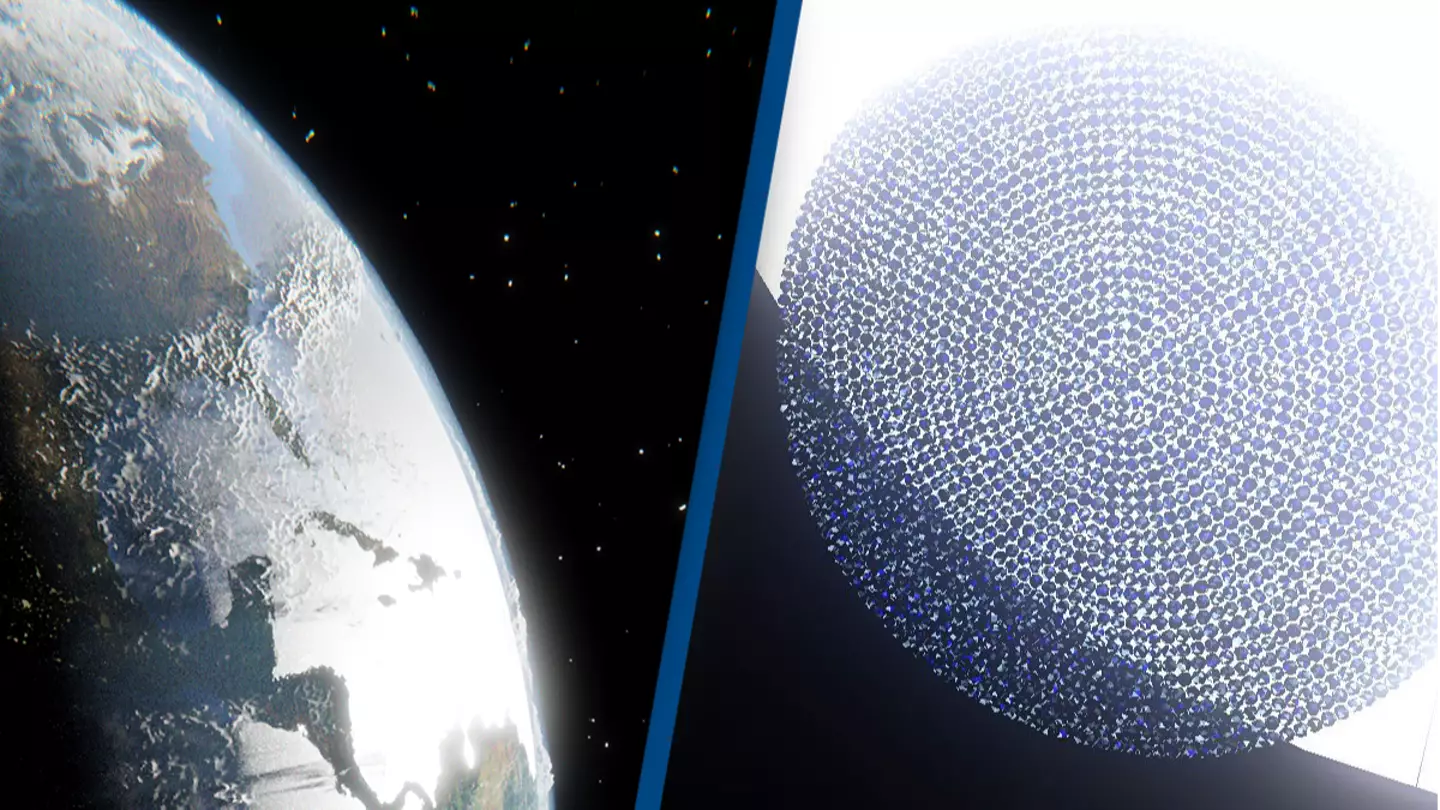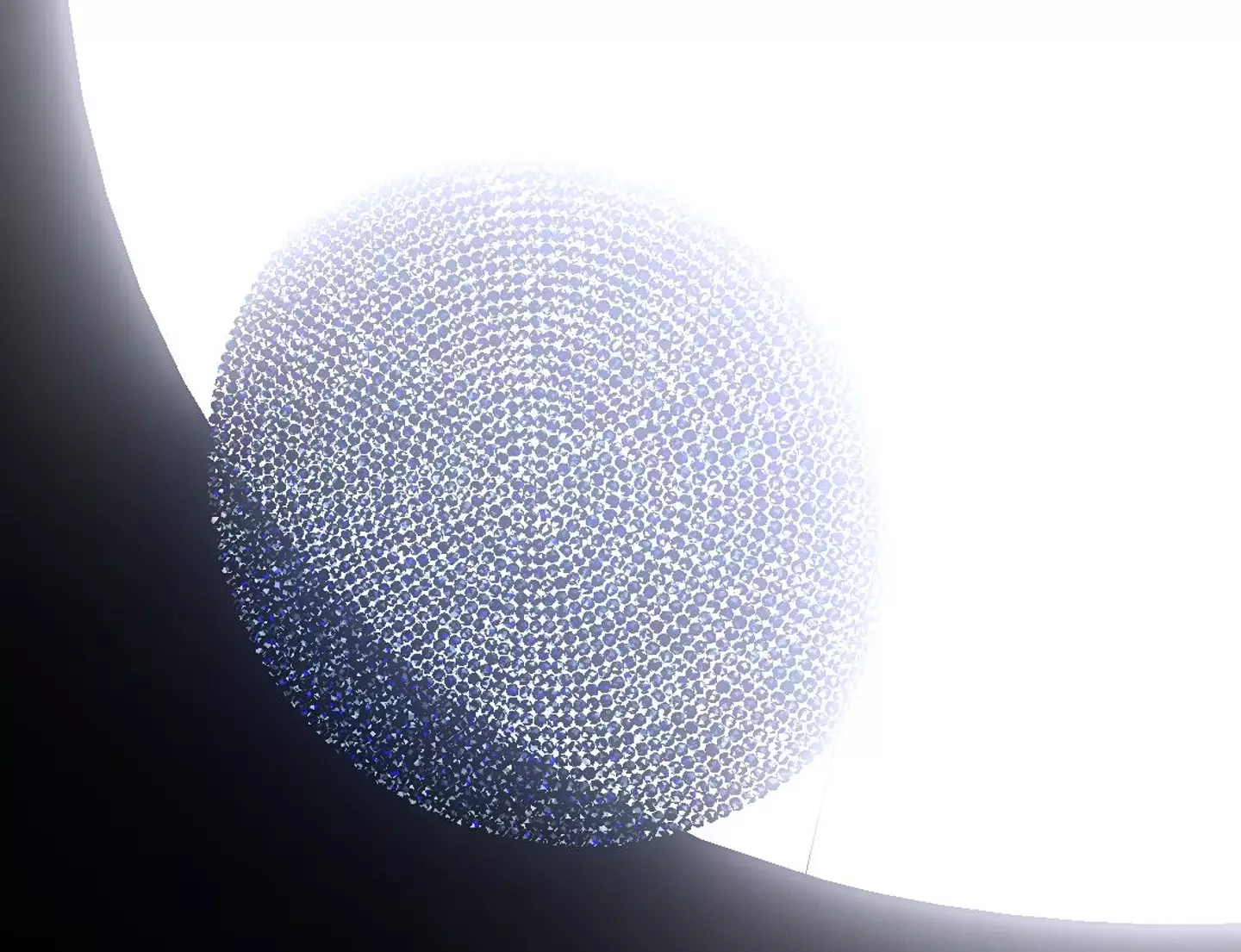
Scientists might have a new solution to tackling climate change - it just involves making a 'space bubble' the size of Brazil.
Climate change is having a growing impact on the world around us as temperatures around the world rise to higher levels and mighty glaciers in the Antarctic melt quicker than ever before.
Plenty of countries have set targets to reach 'net zero' carbon emissions in years to come but those days are a long way away and have been slated as b******t by climate activists like Greta Thunberg.
A lot of changes will have to be made to tackle the planet's issues, and that might mean finding new solutions.
Advert
That's what a team of scientists at the Massachusetts Institute for Technology (MIT) are doing, and their plan is to develop a shield of frozen bubbles suspended in space to reflect some of the sun's light away from the Earth.

These space bubbles are part of solar geoengineering technology designed to reflect away the light of the sun and keep our planet cool.
Right now solar geoengineering efforts to tackle climate change involve dispersing aerosols into the Earth's upper atmosphere to reflect light away and cool down the planet.
However, filling the atmosphere with aerosols could have some other negative impacts we don't know about yet, which is why putting the technology into space itself might be the solution we need.
The researchers have managed to create a shield of space bubbles made out of silicon which can exist in an environment similar to the lack of pressure and coldness of space.
MIT explained they could potentially make rafts full of these bubbles and position them in space in an ideal location to reduce the glare of the sun.
Scientists have already worked out the ideal spot for their bubble shield - a spot in space called the L1 Lagrangian Point, where the gravity from both the Earth and the Sun cancel each other out.
The bubbles have been tested to survive in temperatures of -50°C so they should be alright in the freezing cold of space itself.

There is a slight hitch with this plan for a series of bubble rafts, however, as the overall size of the shield will have to be somewhere in the 'Brazil' region for the plan to work.
If making a shield of bubbles the size of Brazil and sending it into space sounds like a difficult task, that's because it is.
Luckily, scientists have suggested the rafts could make new bubbles in space, reducing the problem of making something the size of Brazil and getting it into space.
One other handy thing about making this shield out of bubbles is if it turns out not to work or have unforeseen consequences then you can always pop a few bubbles to reduce the shield.
The space bubble is the latest in a line of ideas from scientists hoping to invent ways out of climate change.
Other technologies being developed include carbon capture devices which can suck in air and scrub the carbon particles out to produce cleaner air.
If you have a story you want to tell, send it to UNILAD via [email protected]
Topics: Space, Science, Technology